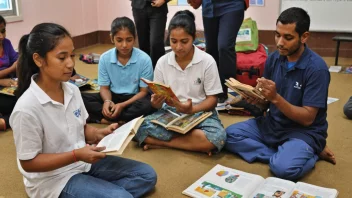Spirituality can play a crucial role in helping children develop resilience. It provides a framework for understanding life's challenges, instilling hope, and fostering a sense of belonging. This article explores frequently asked questions about how spirituality can enhance resilience in children, offering insights and guidance for parents, educators, and community members.
What is resilience in children?
Resilience refers to the ability to bounce back from adversity, trauma, or stress. For children, this means not only recovering from difficult situations but also growing stronger and more capable in the process. Resilience can be influenced by various factors, including family support, social skills, and, importantly, spiritual beliefs.
How does spirituality contribute to resilience?
Spirituality provides children with a sense of meaning and purpose. It helps them navigate life's challenges by fostering an inner strength that encourages coping mechanisms. Children who engage in spiritual practices often report feeling more connected to themselves, others, and the world around them, which can enhance their resilience.
What are some spiritual practices that can build resilience in children?
- Mindfulness and meditation: These practices can help children manage stress and improve emotional regulation.
- Gratitude exercises: Encouraging children to express gratitude can shift their focus from negative experiences to positive aspects of their lives.
- Community involvement: Participation in community service or spiritual gatherings can foster a sense of belonging and support.
- Storytelling: Sharing spiritual stories or parables can impart valuable life lessons and moral guidance.
Can spirituality help children cope with trauma?
Yes, spirituality can be a powerful tool for children coping with trauma. It offers a sense of hope and encourages a positive outlook on life, which can be vital during challenging times. Spiritual beliefs can provide children with a narrative that helps them make sense of their experiences and find comfort in difficult situations.
How can parents encourage spiritual development in their children?
Parents can encourage spiritual development by:
- Modeling spiritual practices: Demonstrating your own spiritual beliefs and practices can inspire children to explore their own.
- Creating a safe space for conversations: Encourage open discussions about spirituality, beliefs, and values.
- Engaging in community activities: Participate in community service or spiritual gatherings to help children connect with others.
- Encouraging reflection: Help children reflect on their experiences and feelings through journaling or discussions.
What role do educators play in fostering spirituality and resilience?
Educators can play a vital role by integrating social-emotional learning (SEL) into the curriculum. This approach can include spiritual teachings that promote resilience, empathy, and community. Additionally, teachers can create an inclusive environment that respects diverse spiritual beliefs, providing support and resources for children to explore their spirituality.
Are there any potential challenges in promoting spirituality among children?
While promoting spirituality can be beneficial, it is essential to approach it sensitively. Potential challenges include:
- Diverse beliefs: Children come from various backgrounds; it's important to respect differing beliefs and practices.
- Pressure to conform: Avoid imposing personal beliefs on children; instead, encourage exploration and personal growth.
- Misunderstandings: Clarify the distinction between spirituality and organized religion, as some may conflate the two.
How can communities support spiritual resilience in children?
Communities can support spiritual resilience by:
- Providing resources: Offer workshops, discussions, and resources that focus on spirituality and resilience.
- Fostering inclusive environments: Create safe spaces where children can explore their spiritual beliefs without judgment.
- Encouraging collaboration: Partner with local organizations to offer programs that promote spiritual growth and community service.
In conclusion, spirituality can be an invaluable asset in fostering resilience in children. By providing a sense of purpose, community, and coping mechanisms, spiritual practices can help children navigate life's challenges more effectively. Whether through family, education, or community involvement, nurturing spiritual growth can empower children to develop the resilience they need to thrive.






